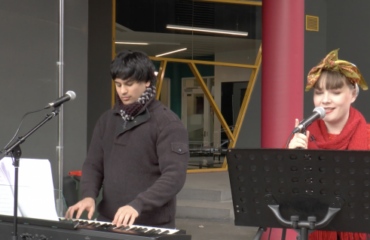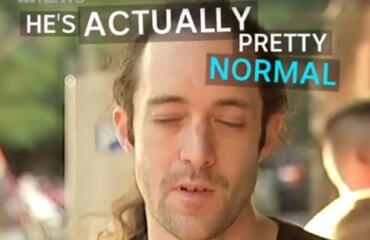Brett Cooper was in Perth conducting an International Women’s Day lunch for NAB on March 13 last year when Australia started shutting down. He recalls sitting backstage and anxiously eyeing his coughing, sweating technical operator.
His phone lit up. Lockdowns were beginning across the country and companies were cancelling long-planned events in a panic.
“I had pretty much all of March booked up and part of April. Within 24 hours, it was all gone,” he says.
“Everything just disappeared.”
Since then, the 52-year-old corporate events freelancer has had only about four weeks of work. His wife, who has spent her career in the same game, also lost all of her work. But the couple were well-prepared. Given the ups and downs of freelancing, they’ve always been careful with money, paying off their home and putting aside savings.
The Preston couple were already dipping into that rainy-day fund when the federal government introduced JobKeeper subsidies in April last year.
The payments “took the pressure off a bit”, covering household bills. Through lockdown, with little opportunity to splurge on luxuries such as meals out, the couple even managed to restore some of their savings.
Now, with JobKeeper gone, they’re drawing on that nest egg again. They’re still pulling in their belts, but are happy to be in a position to keep their 10-year-old daughter active with her gymnastics and netball.
They’re working on the assumption that they need to make the money last. As other workers around the country started swinging back into gear in recent months, Mr Cooper finds his industry and opportunities are still stalled. It will be months, even years, before businesses have the confidence to start scheduling big events.
“The businesses want to spend the money, but they’re scared of another lockdown,” he says.
“If they’re comfortable the borders will stay open, they’ll start spending.”
Mr Cooper got a taste for what would become his lifelong career working on the crew of high school theatre productions. Then came a stint behind the spotlight at Expo ’88 in Brisbane, a six-month extravaganza attended by millions and “a hoot of a time”, and he was hooked.
“From there I just sort of worked my way up: a bit of theatre, a bit of rock’n’roll through Darwin, then discovered corporate theatre where you fly everywhere and you stay at five-star hotels. It’s much nicer hours than rock’n’roll and you get paid better.”
He’s travelled around the country running corporate events for the past 20 years for the likes of BHP, Kmart and Officeworks, mostly staff conferences and awards nights.
His role is backstage – “the conductor of the show” – and he’s invisible if all goes well. But there’s plenty of scope for things to go wrong, and Mr Cooper enjoys solving the technical and logistical problems that arise during his 12-to-14-hour working days.
He suspects COVID-19 will change his industry for good. Companies have discovered webcasting conferences is considerably less expensive than flying people about. Mr Cooper is adapting, co-ordinating some online events and working with a friend on technologies to improve the virtual conference experience, which they hope to license.
He’s optimistic that his business will recover in some form. “It’s still the same thing, just that our audience isn’t in the room.”
But many of his peers are not so confident. A survey by industry group Save Victorian Events in February found 35 per cent of events freelancers had left the game since the pandemic began. Many never qualified for the JobKeeper wage subsidy because they were casual workers.
Of the freelancers who did receive JobKeeper, when asked what the end of payment would mean for them, 69 per cent of respondents said they would need to look for work in other industries.
Mr Cooper is indignant at the shut down of JobKeeper, accusing the federal government of leaving people in his industry behind.
Given their contribution to the economy, he argues they deserve more support until the events scene recovers. A report from the Business Events Council of Australia found business events contributed $35.7 billion to the national economy in 2019 and employed 229,000 people.
Despite his optimism, Mr Cooper is hedging his bets and plans to train as a teachers aide – a job he could juggle alongside gigs.
This past pandemic year hasn’t been without its advantages, he says. He has “looked at it as a bit of a rehearsal for retirement”, spending time with the family, building garden beds, draught-proofing the house he’s feeling grateful to own.
He’s worked a few days this month and has more jobs pencilled in for the coming months, but this won’t cover the gap left by JobKeeper. “That’s enough to cover our bills, but not enough to live on,” he says.
Whether he remains in events or changes course entirely, Mr Cooper is confident things will work out.
“I have a theory the universe will always bring something up for me. Something always comes up.”
This is part of a special reporting project co-published with The Age.




